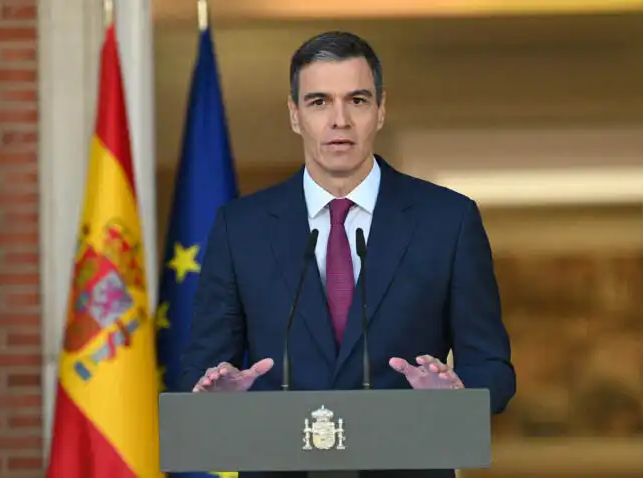
Spanish Prime Minister Pedro Sánchez has announced that he will not resign despite ongoing controversy surrounding corruption allegations against his wife, Begoña Gómez.
Sánchez, facing pressure after a court inquiry into his wife’s activities, dismissed the claims as part of a smear campaign orchestrated by right-wing elements. He emphasized the outpouring of support from across society as a key factor in his decision to stay in office.
The allegations against Gómez, brought by the organization Manos Limpias (Clean Hands), prompted Sánchez to suspend official duties last week for reflection. However, he returned with renewed determination to combat what he termed baseless attacks on his family and their integrity.
In his address, Sánchez reiterated his commitment to upholding dignity and defending against what he views as a campaign to undermine the nation’s values. He acknowledged the persistent nature of these challenges, spanning a decade.
The court inquiry into Gómez, initiated based on media reports, faced skepticism from prosecutors who found insufficient grounds for further investigation. This development led to questions about the credibility of the allegations.
Despite opposition criticism and ongoing legal proceedings, Sánchez’s Socialist Party remains steadfast in support of his leadership, viewing his decision to remain in office as a stand for political integrity and democratic values.
Sánchez’s tenure has been marked by progressive policies on women’s rights and other social issues, garnering both praise and pushback across Spain. His government’s stance on Ukraine and internal policies have contributed to a polarized political landscape.
Mass demonstrations in Madrid underscored public sentiment favoring Sánchez’s continuation as prime minister, reflecting broader divisions within Spanish politics.
Sánchez’s defiance against calls for resignation highlights a pivotal moment in Spain’s political climate, with implications for upcoming regional elections and the country’s future direction.






Be First to Comment